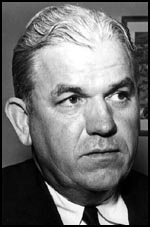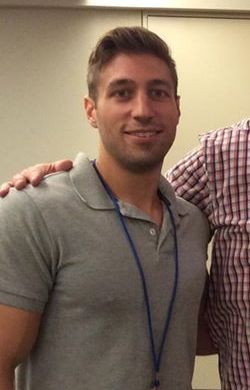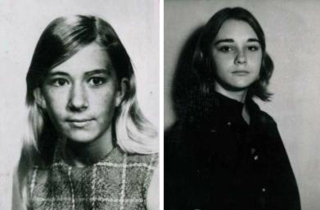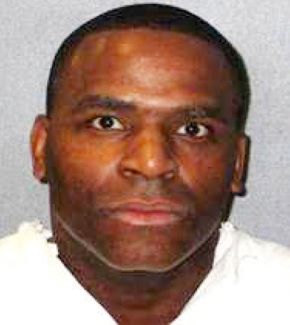Related Research Articles

Henry Menasco Wade was an American lawyer who served as district attorney of Dallas County from 1951 to 1987. He participated in two notable U.S. court cases of the 20th century: the prosecution of Jack Ruby for killing Lee Harvey Oswald, and the U.S. Supreme Court case that held abortion was a constitutional right, Roe v. Wade. In addition, Wade was district attorney when Randall Dale Adams, the subject of the 1988 documentary film The Thin Blue Line, was wrongfully convicted in the murder of Robert Wood, a Dallas police officer.
Randall Dale Adams was an American man wrongfully convicted of murder and sentenced to death after the 1976 shooting of Dallas police officer Robert W. Wood. His conviction was overturned in 1989.
Steven Allan Avery is an American convicted murderer from Manitowoc County, Wisconsin, who had previously been wrongfully convicted in 1985 of sexual assault and attempted murder. After serving 18 years of a 32-year sentence, Avery was exonerated by DNA testing and released in 2003, only to be charged in another murder case two years later.
Robert Dale Rowell was a murderer executed by lethal injection by the U.S. state of Texas. He was convicted of the May 10, 1993, murder of Raymond Davey Mata in a Houston, Texas crack house.
Keith Bernard Clay and Shannon Charles Thomas were American murderers who killed a total of four people between December 1993 and January 1994. Thomas was convicted of the Christmas Eve, 1993 murders of 32-year-old Roberto Rios and his two children: 10-year-old Maria Rios and her 11-year-old brother, Victor Rios, in their Baytown, Texas home. Clay had also been present during the killings and confessed to attacking Roberto. Clay was convicted of the 1994 murder of a gas station clerk, during which Thomas was present. The killing occurred less than two weeks after the Rios family murders. Both were executed by lethal injection by the U.S. state of Texas, in 2003 and 2005, respectively.
Martin H. Tankleff is an American man who was wrongly convicted of murdering his parents, Seymour and Arlene Tankleff, on September 7, 1988, when he was 17 years old. After serving almost 18 years of imprisonment, his conviction was vacated and he was released from prison in 2007. He is now an attorney.
Wrongful execution is a miscarriage of justice occurring when an innocent person is put to death by capital punishment. Opponents of capital punishment often cite cases of wrongful execution as arguments, while proponents argue that innocence concerns the credibility of the justice system as a whole and does not solely undermine the use of the death penalty.
This is a list of notable overturned convictions in the United States.
The Norfolk Four are four former United States Navy sailors: Joseph J. Dick Jr., Derek Tice, Danial Williams, and Eric C. Wilson, who were wrongfully convicted of the 1997 rape and murder of Michelle Moore-Bosko while they were stationed at Naval Station Norfolk. They each declared that they had made false confessions, and their convictions are considered highly controversial. A fifth man, Omar Ballard, confessed and pleaded guilty to the crime in 2000, insisting that he had acted alone. He had been in prison since 1998 because of violent attacks on two other women in 1997. He was the only one of the suspects whose DNA matched that collected at the crime scene, and whose confession was consistent with other forensic evidence.
Ellis Wayne Felker was an American convicted and executed in 1996 in Georgia for the 1981 murder of Evelyn Joy Ludlam, a young woman who was working as a waitress while she attended college.

Troy Anthony Davis was a man convicted of and executed for the August 19, 1989 murder of police officer Mark MacPhail in Savannah, Georgia. MacPhail was working as a security guard at a Burger King restaurant and was intervening to defend a man being assaulted in a nearby parking lot when he was murdered. During Davis's 1991 trial, seven witnesses testified they had seen Davis shoot MacPhail, and two others testified Davis had confessed the murder to them. There were 34 witnesses who testified for the prosecution, and six others for the defense, including Davis. Although the murder weapon was not recovered, ballistic evidence presented at trial linked bullets recovered at or near the scene to those at another shooting in which Davis was also charged. He was convicted of murder and various lesser charges, including the earlier shooting, and was sentenced to death in August 1991.
Zane Michael Floyd is an American convicted mass murderer who at the age of 23 killed four people and injured a fifth in a supermarket in Las Vegas, Nevada, on June 3, 1999. After being convicted of the murders, Floyd was sentenced to death by a Clark County jury.
James Lee Clark was an American murderer with an intellectual disability whose controversial execution by the state of Texas sparked international outcry. The controversy involved the argument that his execution violated the U.S. Supreme Court ruling in Atkins v. Virginia (2002), which held that executions of intellectually disabled criminals is cruel and unusual punishment, which is prohibited by the Eighth Amendment.

William Henry Hance was an American serial killer and soldier who is believed to have murdered four women and molested three in and around military bases before his arrest in 1978. He was convicted of murdering three of them, and not brought to trial on the fourth. He was executed by the state of Georgia in the electric chair.
Tyrone Delano Gilliam Jr. was an American convicted murderer executed by the state of Maryland in 1998. Gilliam was convicted and sentenced to death for the kidnapping and murder of 21-year-old Christine J. Doerfler on December 2, 1988.

Ryan W. Ferguson is an American man who spent nearly 10 years in prison after being wrongfully convicted of a 2001 murder in his hometown of Columbia, Missouri. At the time of the murder, Ferguson was a 17-year-old high-school student.

Thomas Martin Thompson was an American man who was executed in 1998 by the state of California for the 1981 killing of Ginger Fleischli. His execution was controversial; some believe him to have been innocent of the charges, while others thought Thompson's guilt was clear.

Rhonda Renee Johnson and Sharon Lynn Shaw were two American teenage girls who disappeared in Harris County, Texas, on the afternoon of August 4, 1971. In early 1972, the skeletal remains of both girls were discovered in and around Clear Lake near Galveston Bay.

On the night of September 6, 2018, 26-year-old accountant Botham Jean was murdered in Dallas, Texas, by off-duty Dallas Police Department patrol officer Amber Guyger, who entered Jean's apartment and fatally shot him. Guyger, who said that she had entered Jean's apartment believing it was her own and believed Jean to be a burglar, was initially charged with manslaughter. The absence of a murder charge led to protests and accusations of racial bias because Jean—an unarmed black man—was killed in his own home by a white off-duty officer who had apparently disregarded police protocols. On November 30, 2018, Guyger was indicted on a charge of murder. On October 1, 2019, she was found guilty of murder and was sentenced to ten years' imprisonment the following day. The ruling was upheld on appeal in 2021.

Quintin Phillippe Jones was an American man from Livingston, Texas, who was executed for the 1999 killing of his great aunt, Berthena Bryant. Bryant's family and 183,344 other people petitioned Texas Governor Greg Abbott for clemency to commute his death sentence to a life sentence. He was executed on May 19, 2021, the first execution by the state of Texas in 10 months and only the second since the beginning of the COVID-19 pandemic in March 2020. He was executed without any media presence.
References
- 1 2 "Man who killed Dallas officer to be executed". Fox4 News. October 14, 2015.
- 1 2 3 "Texas to Execute 33-Year-Old Licho Escamilla for Fatally Shooting Dallas Police Officer". Newsweek. Reuters. October 14, 2015.
- ↑ "Quintin Alonzo". The National Registry of Exonerations.
- ↑ "Dallas man freed after 17 years in prison for wrongful murder conviction" (Text.Article). FOX 4 News Dallas-Fort Worth. 2018.
- ↑ ""Actual Innocence" declared for Dallas man after serving 15 years for death of local teen". North Dallas Gazette. October 12, 2019.
- 1 2 "Officer's Widow Outraged Husband's Murderer Could Get New Trial". CBS Texas. April 16, 2014.
- ↑ "Texas man convicted of killing police officer to be executed on Wednesday". The Guardian. The Associated Press. 2015.
- ↑ Escamilla v. Stephens 749F.3d380 , 394(5th Circuit Court of Appeals2014).
- ↑ Utrecht, Jennifer (2015). "Pinholster's Hostility to Victims of Ineffective State Habeas Counsel". Michigan Law Review. 114 (1): 151. ISSN 0026-2234.
- ↑ Escamilla v. Stephens, No. 12-70029 (5th Circuit Court of Appeal)
- ↑ "Search - Supreme Court of the United States". supremecourt.gov.
- ↑ "Death Row Information". Texas Department of Criminal Justice. Retrieved 2024-10-16.